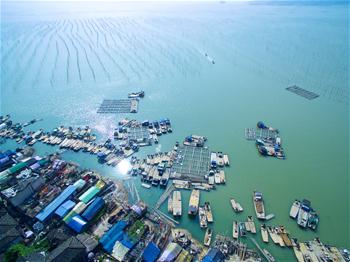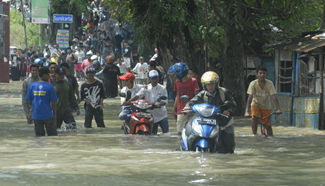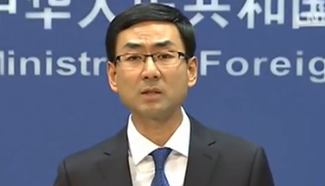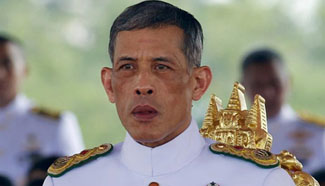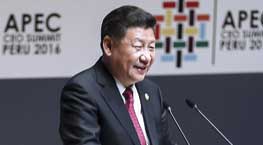UNITED NATIONS, Nov. 29 (Xinhua) -- Palestine on Tuesday lamented "in specific" the UN Security Council's failure to make peace between the Israelis and Palestinians, saying that "continued international appeasement and inaction are indefensible."
Riyad Mansour, the permanent observer of the State of Palestine to the United Nations, made the remarks as he was speaking at the UN General Assembly to mark the International Day of Solidarity with the Palestinian People, which falls on Nov. 29.
"As the situation further deteriorates and peace remains far from our grasp, we lament in specific the Security Council's failure to uphold its Charter duties and implement its resolutions," Mansour said.
"We cannot conceal our deep disappointment and frustration at the absence of serious efforts to uphold political and legal responsibilities towards the question of Peastine, the core of the Arab-Israeli conflict," he said.
"This silence irrationally and unacceptably continues despite blatant contempt by Israel, the occupying Power, for the council and systematic, grave violations that have compounded and prolonged the conflict, which remains at the root of the instability and crises in our region and the cause of great human suffering, traumatization generation after generation of Palestinians, depriving them of their rights and a life of freedom, stability and dignity," he said.
"Against a backdrop of successive generations lost, the despair and hopelessness of our youth in particular at this moment -- whether in Occupied Palestine, including East Jerusalem, or throughout the Palestinian refugee camps in Jordan, Lebanon and Syria -- is a source of vast pain and worry," he said.
"As this injustice persists, constituting a bleeding wound in the Middle East, destabilizing the region, undermining peace and stability far beyond, and weakening international law and the international system itself, we must ask: when will the Security Council finally respond to the global appeals to act to heal this wound and contribute to peace and security in our region, as demanded by its Charter mandate and relevant resolutions?"
"How can the international community continue justifying inaction and lack of accountability as we approach the half-century mark of Israel's military occupation and as the international promise to the Palestinian people remains broken and they continue to be denied self-determination, the most fundamental rights?" he said.
Under the UN Charter, the 15-nation Security Council, the most powerful UN body, has the primary responsibility for maintaining international peace and security.
"What is lacking has not been support or solidarity for Palestine, but rather political courage and will to respect and ensure respect for the law in the face of Israel's intransigence and disrespect," he said.
Also on Tuesday, UN Secretary-General Ban Ki-moon called on the international community to reaffirm commitment to upholding the rights of the Palestinian people and working to build a future of peace, justice, security and dignity for Palestinians and Israelis alike.
In his message to mark the International Day of Solidarity with the Palestinian People, which falls on Nov. 29, the secretary-general Ban said the Israeli-Palestinian conflict is a "long-standing, gaping wound that has fed tension and conflict throughout the Middle East."
The secretary-general called for "urgent steps" to revive the two-state solution, which, widely backed by the world community, means a secure Israel to live in peace with an independent State of Palestine.
The date Nov. 29 was chosen for this Day of Solidarity because on that day in 1947, the General Assembly adopted the Partition Resolution which provided for the establishment of a "Jewish State" and an "Arab State" within Palestine, where Israel serves as a corpus separatum under a special international regime. So far, only the Jewish State of Israel has come into existence.
The International Day of Solidarity is an opportunity to draw the international community's attention to the fact that the question of Palestine is unresolved and that its people have yet to attain their inalienable rights -- namely, the right to self-determination without external interference.



